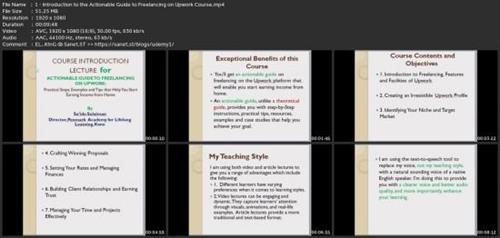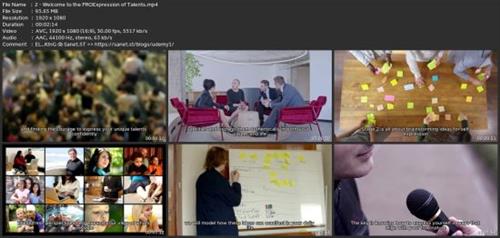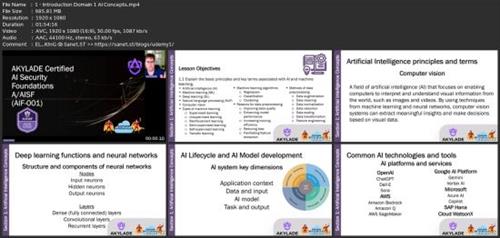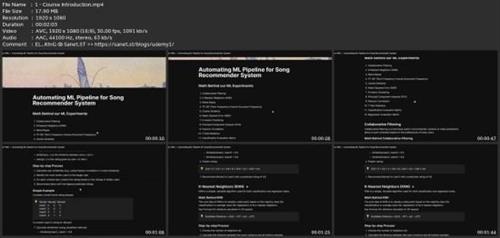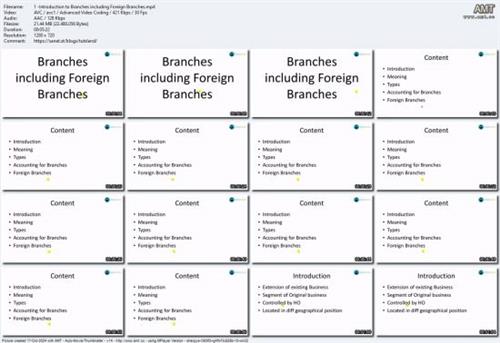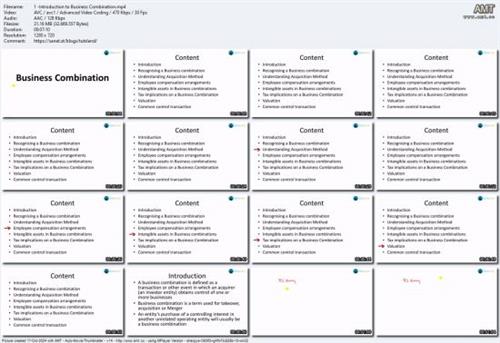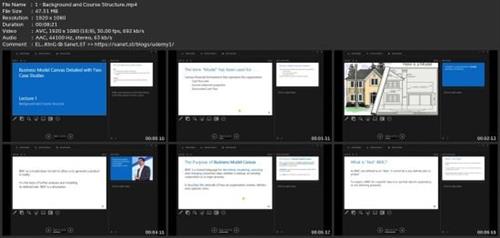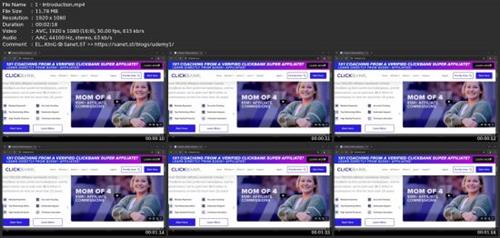A Complete Guide to Programming Fundamentals and Real-World
Published 10/2024
MP4 | Video: h264, 1280x720 | Audio: AAC, 44.1 KHz, 2 Ch
Language: English | Duration: 1h 34m | Size: 385 MB
"Learn Python from Scratch: Build a Strong Programming Foundation and Create Real-World Projects"
What you'll learn
Understand Python Fundamentals: Learn the basics of Python, including syntax, data types, and variables.
Control Flow Mastery: Implement conditional statements, loops, and branching to control the flow of your programs.
Functions & Modules: Write reusable code, understand function arguments, return values, and manage imports effectively.
Work with Data Structures: Manipulate lists, tuples, sets, and dictionaries, and use them efficiently in various applications.
File Handling: Read from, write to, and manage files in Python, including working with CSV and JSON formats.
Object-Oriented Programming (OOP): Master OOP concepts such as classes, objects, inheritance, polymorphism, and encapsulation.
Error Handling & Debugging: Handle exceptions gracefully and debug your programs to write robust, error-free code.
Libraries & APIs: Learn to install and use external Python libraries and interact with APIs for enhanced project functionality.
Build Real-World Projects: Integrate Python skills to develop and deploy projects using libraries like pandas and Matplotlib for data analysis.
Requirements
No prior programming experience required - this course is designed for complete beginners to masters
A computer with internet access - to install Python and follow along with the coding exercises.
Basic computer skills - students should be comfortable with downloading and installing software.
Desire to learn - a willingness to practice coding and problem-solving as you progress through the course.
Description
Are you ready to unlock the full potential of Python, the language used by top tech companies like Google and Netflix? Whether you're completely new to programming or looking to level up your skills, this course will guide you from absolute beginner to confident Python programmer, with no prior experience required.This course offers a practical, hands-on approach to learning Python, taking you from the fundamentals to building real-world projects. Along the way, you'll gain the skills needed to automate tasks, analyze data, and create robust applications that solve real problems.Why choose Python? Python is not only beginner-friendly but also one of the most versatile languages used in web development, data science, machine learning, and automation. With its simple syntax and powerful capabilities, you can quickly and easily transition from learning to doing, turning your new skills into practical, tangible results.In this course, you'll also have access to coding exercises, quizzes, and real-world examples to solidify your understanding of Python. Plus, with lifetime access, you can revisit the material anytime, whenever needed. Don't miss out on the chance to learn one of the most versatile and powerful programming languages today. Join now and start your journey to mastering Python!
Who this course is for
Beginners in Programming - Ideal for those with no prior experience who want to learn Python from scratch.
Aspiring Developers - Anyone looking to build a foundation in programming and eventually pursue careers in software development, web development, or app development.
Data Science & AI Enthusiasts - Individuals interested in exploring Python for data analysis, machine learning, or artificial intelligence.
Professionals Seeking to Automate Tasks - Office professionals and IT personnel looking to use Python to automate tasks and improve workflows.
Students and Learners - College or high school students interested in learning Python as part of their curriculum or for personal development.
Hobbyists & Tinkerers - Anyone who enjoys learning new technologies and wants to build fun, practical projects with Python.
Homepage:
Code:https://www.udemy.com/course/a-complete-guide-to-programming-fundamentals-and-real-world/Screenshots
Say "Thank You"
rapidgator.net:
[Only registered and activated users can see links. ]
ddownload.com:
[Only registered and activated users can see links. ]

 Our Live Cams
Our Live Cams



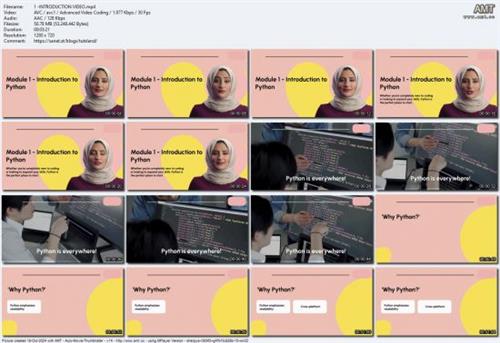

 Reply With Quote
Reply With Quote
